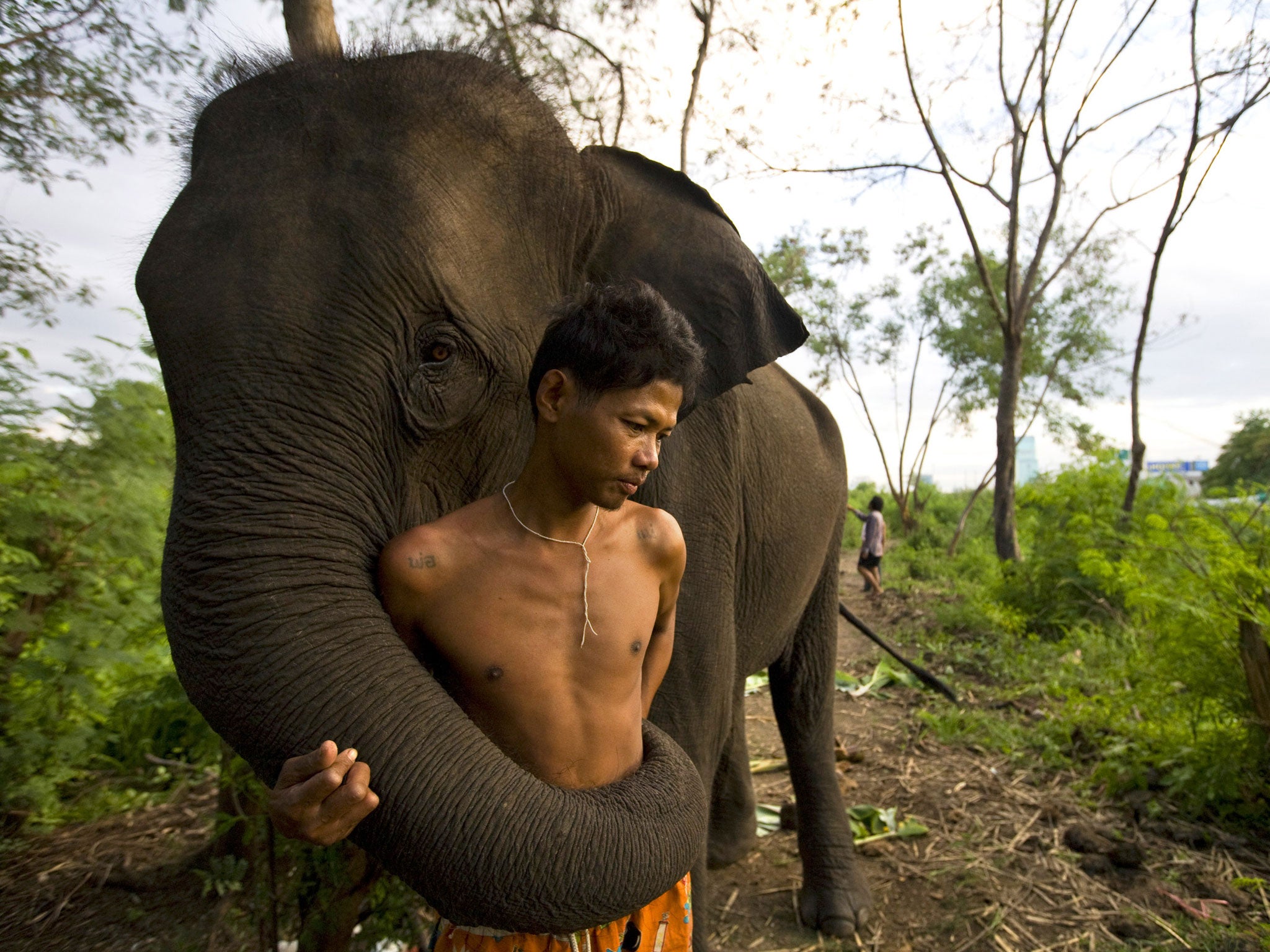Elephants console each other in times of distress
The animals put their trunks in each other's mouths as a way of 'hugging' and offering reassurance, according to a new study

Your support helps us to tell the story
From reproductive rights to climate change to Big Tech, The Independent is on the ground when the story is developing. Whether it's investigating the financials of Elon Musk's pro-Trump PAC or producing our latest documentary, 'The A Word', which shines a light on the American women fighting for reproductive rights, we know how important it is to parse out the facts from the messaging.
At such a critical moment in US history, we need reporters on the ground. Your donation allows us to keep sending journalists to speak to both sides of the story.
The Independent is trusted by Americans across the entire political spectrum. And unlike many other quality news outlets, we choose not to lock Americans out of our reporting and analysis with paywalls. We believe quality journalism should be available to everyone, paid for by those who can afford it.
Your support makes all the difference.Asian elephants console each other when they are distressed by touching and “talking” to each other, according to new research suggesting the animals have the ability to be both empathetic and reassuring.
The study focused on a group of 26 Asian elephants in captivity, spread over 30 acres at an elephant camp in northern Thailand.
Researchers observed instances when an elephant displayed a stress reaction, and the responses other elephants nearby gave for over a year.
The study, led by Joshua Plotnik of Emory University, found that nearby elephants affiliated significantly more with a distressed individual through directed, physical contact following a stressful event than during control periods.
They also responded to another's distress in a similar way to humans, offering comfort through physical contact. "Humans are unique in many ways, but not in as many ways as we once thought," Mr Plotnik said.

Typically, one elephant would go to the side of the distressed animal and use its trunk to gently touch its face, or put its trunk in the other animal's mouth.
The gesture of putting their trunks in each other's mouths is almost like an elephant handshake or hug, Mr Plotnik said. “It's a very vulnerable position to put yourself in, because you could get bitten. It may be sending a signal of, 'I'm here to help you, not hurt you.'”
The responding elephants also showed a tendency to vocalise reassurance. “The vocalisation I heard most often following a distress event was a high, chirping sound,” Mr Plotnik explained. “I've never heard that vocalization when elephants are alone. It may be a signal like, 'Shshhh, it's okay,' the sort of sounds a human adult might make to reassure a baby.”
“With their strong social bonds, it's not surprising that elephants show concern for others,” co-author Frans de Waal, an Emory professor of psychology said. “This study demonstrates that elephants get distressed when they see others in distress, reaching out to calm them down, not unlike the way chimpanzees or humans embrace someone who is upset.”
The elephants frequently responded to the distress signals of other elephants by adopting a similar body or emotional state, a phenomenon known as "emotional contagion," which may be related to empathy.
Groups of nearby elephants were also more likely to huddle together and make physical contact with each other.
Mr Plotnik conceded that the current elephant study was limited due to the fact that it was restricted to captive animals, but said it was just "a first step". He added: "I would like to see this consolation capacity demonstrated in wild populations as well."
Wild populations of elephants, however, are becoming increasingly scarce, and both Asian elephants and African elephants are endangered.
Join our commenting forum
Join thought-provoking conversations, follow other Independent readers and see their replies
Comments